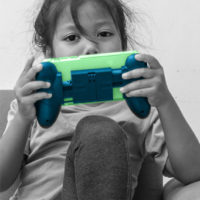Cognitive Training
-

Cognitive flexibility in OCD: challenging the paradigm
Data from a new study by Nicole Wolff and colleagues suggest that cognitive flexibility can be better in children with obsessive-compulsive disorder (OCD) than typically developing controls.
Read more -

Dysregulation profile risk may be identified in infancy
The “dysregulation profile” (DP) describes a child psychopathology construct that measures broad-based, generalised emotional and behavioural dysregulation using the Child Behaviour Checklist
Read more -

In conversation… Professor Andrea Danese discusses Trauma
Andrea discusses the impact trauma has on the child, the Topic Guide on Trauma he wrote with Dr Patrick Smith for ACAMH. He also talks about the recent paper in The Lancet ‘The epidemiology of trauma and post-traumatic stress disorder in a representative cohort of young people in England and Wales’ Lewis, S J et al, and its findings.
Read more -

What is the effect of post-institutionalisation? A research digest
Research digest on DePasquale, Donzella and Gunnar’s (2018) study, which was published JCPP ‘Pubertal recalibration of cortisol reactivity following early life stress: a cross‐sectional analysis’.
Read more -

In Conversation… Dr Arnon Bentovim
Dr Arnon Bentovim, Child and Family Psychiatrist, and founder the Child and Family Practice, talks about child and family training to develop and train evidence-based approaches to assessment, analysis, and intervention.
Read more -

Professor Eric Taylor – JCPP: Translating science to practice
Recorded lecture from Eric Taylor, at the Wellcome Collection, celebrating the 60th Anniversary of the Journal of Child Psychology and Psychiatry
Read more -

Responding to a Digital Generation
Considering the impact of digital media on the mental health of young people, both positive and negative, and how we can support them. Key learning points Identify the issues young people face living in today’s digital world Lived experience of the impact of digital media with children and young people Understand the benefits and challenges […]
- Event type
- Conference
- Location
- Glasgow
-

Abnormal visual fixation does not mediate deficits in emotion recognition in conduct disorder
Studies have shown that conduct disorder (CD) is associated with impaired recognition of facial emotions1, but whether the cause of this deficit is due to difficulties with attention, interpretation and/or appraisal is unclear. Now, researchers at the Universities of Southampton and Bath have addressed this question.
Read more -

Aggression toward siblings during the preschool years: When does it become atypical?
Most children grow up with siblings. During early childhood, siblings spend a great deal of time together and must navigate challenging situations such as sharing toys and parental attention, features that make conflict inevitable and often emotionally intense.
Read more -

Comorbid anxiety disorder has a protective effect in conduct disorder
The presence of comorbid anxiety disorders (ADs) counteracts the effects of conduct disorder (CD) on facial emotion recognition, according to new research by Roxana Short and colleagues.
Read more